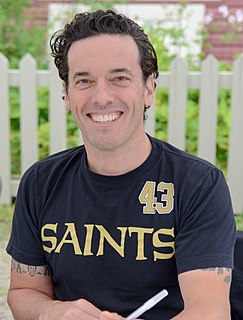Top 26 Quotes & Sayings by Joseph Boyden
Explore popular quotes and sayings by a Canadian novelist Joseph Boyden.
Last updated on April 14, 2025.
The world is a different place in this new century, [...]. And we are a different people. My visions still come but no one listens any longer to what they tell us, what they warn us. I knew even as a young woman that destruction bred on the horizon. [...] War touches everyone, and windigos spring from the earth.
There's a few scholars that object to how the italicized sections suggest that Native people are to take some part in the blame for how colonization occurred. But I say, "Yes they are." Not nearly as much blame as the colonizers, of course. But we are not just victims. I hate this idea that we are all just victimized and oppressed and etcetera etcetera. It's dehumanizing in its own way.























